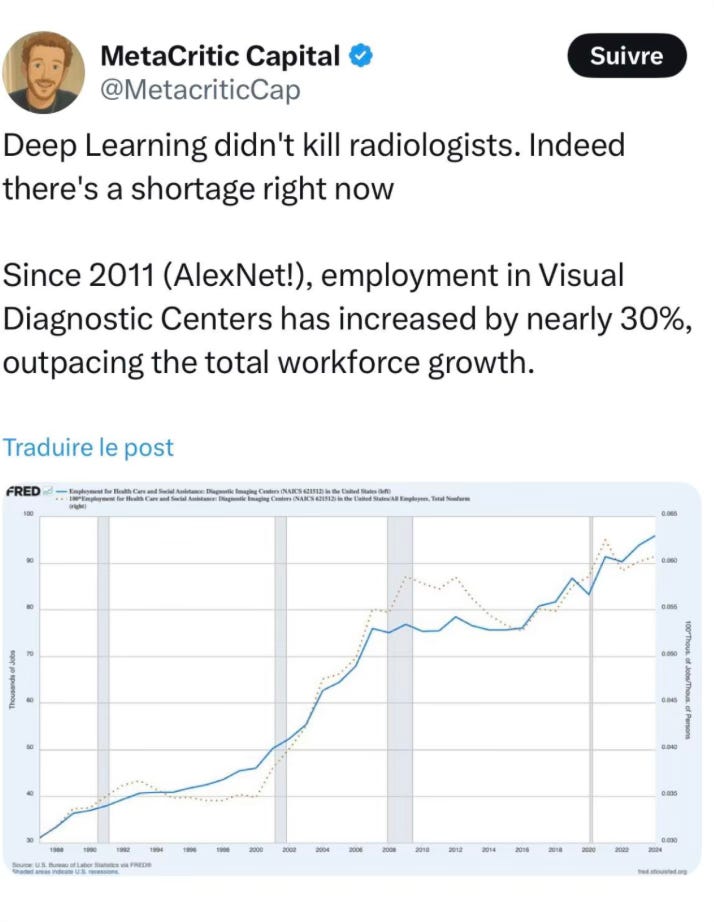We’ve reached that time of year when everything slows down a bit. The vibe is lighter, and even those still working seem to do it wrapped in a kind of serene calm. In this more relaxed atmosphere, I felt like changing things up. No usual format today, just a raw, straight-to-the-point piece, written as my thoughts unfold, around three ideas that have been on my mind.
No, AI Doesn’t Make Hard Skills Obsolete
You often hear that with the rise of generative AI and its dizzying acceleration, technical skills are becoming less important. That’s wrong. The more you master your craft, the better you’ll be at giving the right inputs to the machine, judging the quality of its output, and pushing it toward something truly meaningful.
In reality, AI increases the value of specialists. Why?
The baseline is higher: everyone can now handle the simple stuff, so real differentiation happens in complex, high-value areas.
More creators = more complexity: the more people building with AI, the more sophisticated the use cases—and the more we need “meta-problem solvers” who can integrate, customize, and scale.
Low-code, no-code, vibe-code tools are great… but: they all start to look alike. The competitive edge comes from deep customization, attention to detail, and finely tuned adaptation to real-world needs. That’s still a very human skill.
The pace of change: tools evolve so fast that only deep expertise lets you keep up without drowning in surface-level hacks.
In short, AI doesn’t replace expertise, it makes it indispensable.
Stop Trying to “Augment” Humans
Another irritation: this obsession with “augmenting” humans. Honestly, enough. As if we weren’t already seeing the explosion of mental health issues and the new syndromes of modern work: burnout, bore-out, brown-out…
Augmenting means piling on: more speed, more productivity, more features. But we already live in a culture of ultra-performance, where we keep stacking things without ever asking if it’s actually better. A shortcut will never replace the journey.
We don’t need to augment humans. We need to expand them. Augmentation comes from the outside; expansion grows from within. Augmentation pushes us to perform; expansion invites us to grow.
What we really need is less accumulation, and more depth.
The True Value of AI
When people read me, some assume I’m naïve, that I downplay geopolitical dangers, or the hubris of the “tech bros.” That’s not the case. It’s a choice. I prefer candor to naïveté.
Naïveté ignores reality. Candor knows it, but chooses to look at it differently, with curiosity intact. Merleau-Ponty reminds us that perception is never passive: it’s a constant act of rediscovery shaped by our presence in the world. And that’s exactly what AI can provoke when we approach it with the right mindset: it can nudge us to see again, to notice differently. As long as we keep our curiosity, we keep our ability to see the world anew.
That’s why I’m more inclined to talk about possibilities than threats. For me, the true value of AI lies in its ability to shift our perspective, reveal new angles, and surface invisible connections. Machines reproduce what they know; humans create what doesn’t yet exist.
In that sense, I’m aligned with Yann LeCun’s words: “The real genius of AI is not to think like us, but to show us new ways of thinking.”
With that in mind, I’ll probably slow down my publishing until September. In the meantime, I wish you a beautiful and gentle summer.
MD



